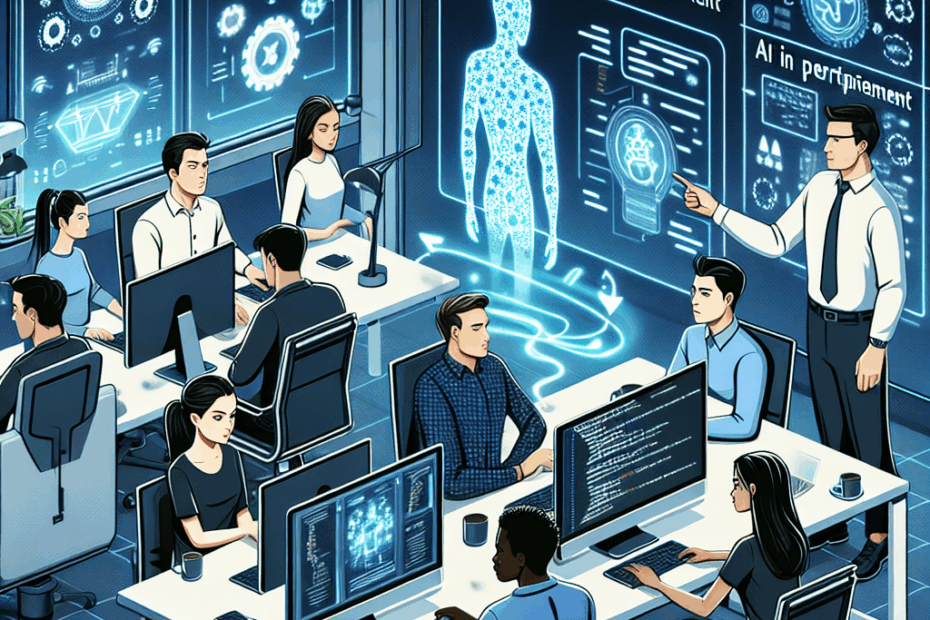“`html
AI Isn’t Taking Your Job, But It’s Changing How Leaders Lead
Hey everyone, John here! Today, we’re talking about something that’s been on a lot of people’s minds: Will AI steal my job? Specifically, will those fancy new AI tools take over software engineering? Well, according to a recent report, the answer is a reassuring “no.” But there’s a twist!
AI as a Super-Helper, Not a Replacement
The report, from Gartner (a company that studies these things), says that AI, especially something called “Generative AI” (GenAI), isn’t here to replace software engineers. Instead, it’s more like a super-powered assistant. It can help teams work better and faster.
Lila: John, what’s “Generative AI”? It sounds complicated!
John: Great question, Lila! Generative AI is AI that can create new things. Think of it like this: regular AI can tell you what’s already out there, but Generative AI can make something brand new, like writing code or creating images. It’s like the difference between a librarian (regular AI) and an artist (Generative AI).
Apparently, about half of software development teams are already using these AI tools to help them out. They’re making the engineers stronger, not replacing them!
Helping Everyone, From Newbies to Experts
GenAI can be useful for all levels of software engineers. Experienced folks can use it to quickly learn new platforms or jump onto different projects. Less experienced team members can use it to automate the boring, repetitive tasks, freeing them up to focus on the more interesting and challenging parts of their jobs.
Showing the Real Value of AI
But here’s the thing: it’s not enough just to have AI. Leaders need to show how it’s actually helping the business. They need to connect the tech stuff to real-world results. By doing this, they can get more support and investment in their teams.
The main takeaway is that GenAI isn’t about cutting costs or firing people. It’s about making engineering teams more effective.
Changing How We Hire and Manage Talent
AI is also changing how companies find and manage talent. Things that used to take a lot of time, like writing job descriptions or summarizing interview feedback, can now be done much faster with AI.
Lila: So, AI can write job descriptions now? Does that mean I can ask it to write my resume?
John: Exactly, Lila! And that’s a great example of how AI is changing things. It can definitely help you draft a resume, but remember, it’s still important to personalize it and make sure it truly reflects your skills and experience.
In fact, a survey showed that over a third of companies are using AI to generate job descriptions. This can speed up the hiring process and help companies find the best candidates more quickly.
For example, leaders can ask AI, “What are the most important skills for a platform engineering manager?” This gives them a good starting point. AI can also transcribe and summarize interviews, saving tons of time. Even onboarding new employees can be easier with AI-powered chatbots that answer questions and guide them through paperwork.
Three Things Leaders Should Focus On
So, how can leaders make sure their teams are successful in this new AI-powered world? The report outlines three key areas:
- Strategic skill management and development: Leaders need to train their teams on how to use these new AI tools. This includes things like Large Language Models (LLMs) and prompt engineering.
Lila: What are Large Language Models and prompt engineering?
John: Okay, imagine LLMs as super-smart computers that have read almost everything on the internet. They can understand and generate text, translate languages, and answer your questions in an informative way. Prompt engineering is the art of asking these LLMs the right questions (or giving them the right instructions) to get the best results. It’s like learning how to talk to a very intelligent, but sometimes literal, computer!
- Cultivating a culture of learning: Companies need to create a learning environment where employees are constantly developing their AI skills. They should be learning these skills before they’re even needed.
- Establishing new ethics policies: It’s important to have clear rules about how AI is used. This includes things like data privacy and security. They need to define responsibilities across DevOps, DataOps, and ModelOps cycles.
Lila: DevOps, DataOps, ModelOps? More jargon!
John: Sorry about that, Lila! Think of it this way: DevOps is all about making software development faster and more efficient. DataOps is about managing data so it’s reliable and useful. And ModelOps is about making sure AI models (the brains of AI systems) are working correctly and doing what they’re supposed to do. It’s like making sure all the parts of a factory (software, data, and AI) are working together smoothly and ethically.
My Thoughts
From my perspective, this report is encouraging. It highlights that AI is a tool to be used, not feared. It’s all about adapting and learning how to use these new technologies to our advantage.
Lila: As a beginner, I’m still a little nervous about AI, but it’s good to know it’s supposed to help us, not replace us! I guess I need to start learning how to talk to these LLMs!
This article is based on the following original source, summarized from the author’s perspective:
GenAI won’t take software engineering jobs, but is reshaping
leadership
“`
